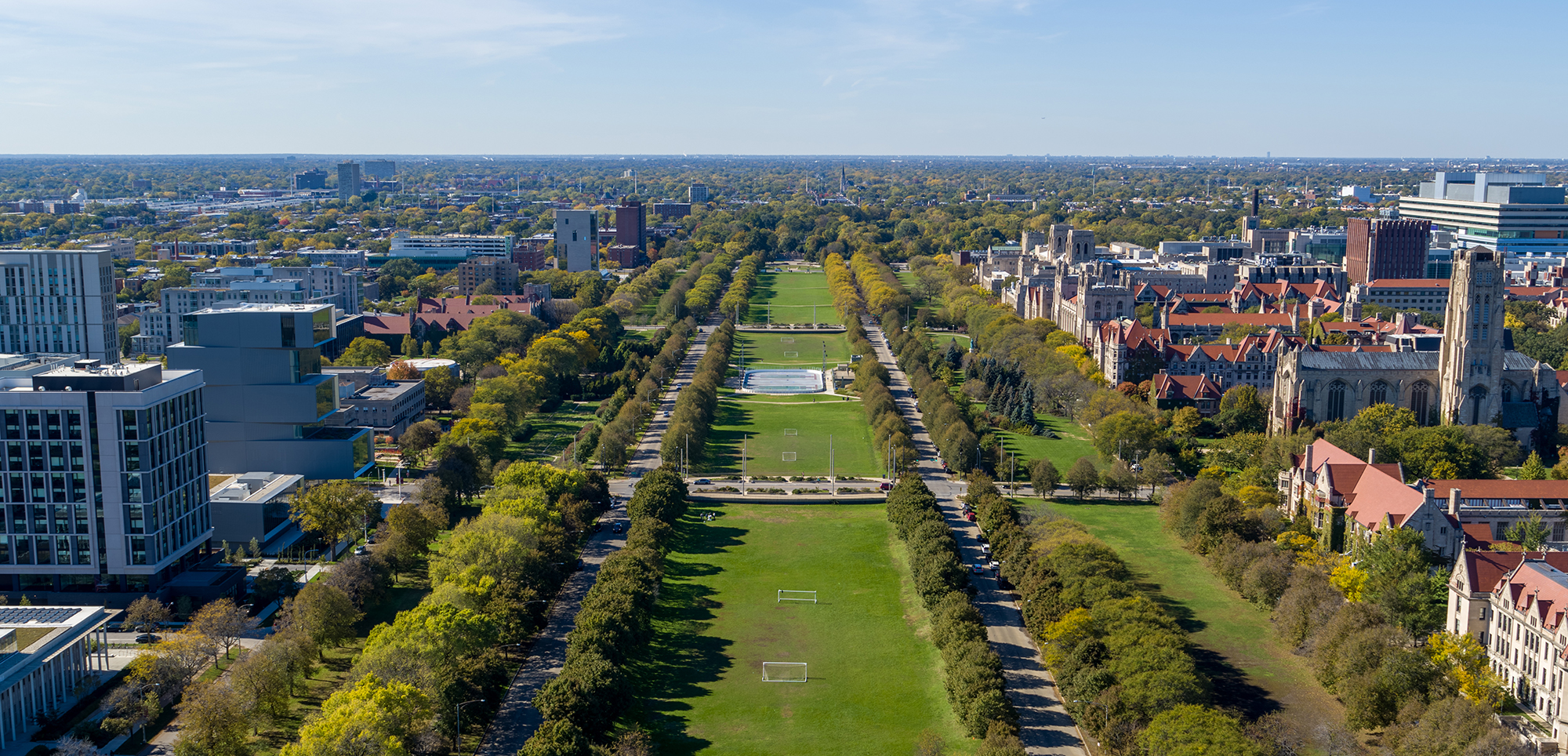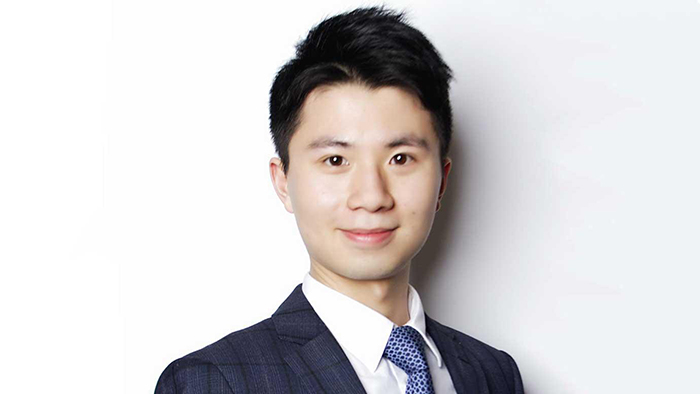
(Photography by Soaring Badger Productions)
A devastating crime spurs new measures to improve neighborhood security.
Following a fatal shooting near campus in November, the University announced several immediate steps to enhance safety on campus and in Hyde Park and surrounding neighborhoods while it works with the city and the community to identify longer-term measures.
Shaoxiong “Dennis” Zheng, SM’21, who graduated this past summer with a master’s in statistics, was shot and killed during a robbery November 9 near his apartment building on East 54th Place at Ingleside Avenue. (See “A Scholar Remembered” below.) A suspect arrested by Chicago Police three days later has been charged.
In the weeks following Zheng’s death, the University hosted several events to address the sorrow and concern of a shaken community. At a November 17 discussion open to the public and broadcast online, leaders from the University and the Chicago Police Department reaffirmed their commitment to public safety, outlined new steps to enhance campus safety, and answered questions from the audience.
President Paul Alivisatos, AB’81, acknowledged the collective grief felt for Zheng’s loss and the grief felt “throughout our neighboring communities across the South Side, where too many have been victims of violence.” He said he “would like to state unequivocally that safety is my top priority. We are diligently working to make it safer on and around our campus.”
Also speaking at the event was Eric Heath, associate vice president for safety and security at UChicago, who outlined the steps that the University of Chicago Police Department (UCPD) has taken in response to the tragedy (“Safety Measures,” below). Chicago Police Department (CPD) superintendent David Brown discussed the work that led to the arrest of the suspect for Zheng’s murder.
Public events addressing safety continue. At a roundtable convened by Chicago mayor Lori Lightfoot, JD’89, on November 20, University and city officials discussed longer-term public safety strategies, emphasizing the need for partnerships and for collaborative approaches beyond policing to address violence and its root causes.
Another roundtable, held January 25, brought together city, state, community, and University leaders to share ideas on violence prevention. At the event, Alivisatos announced the University’s intent to work with the broader South Side community to design and launch a new multiyear fund aimed at reducing violence by supporting and encouraging partnerships between the University and community-based organizations. The University plans to engage stakeholders throughout the next two months, announce details of the fund in the spring, and issue the fund’s first grants by summer, Alivisatos said.
For more about the University’s ongoing work to improve public safety, address violence, and strengthen communities, see “A Message on Safety” (On the Agenda).
Safety measures
During a November 17 campus safety and security discussion, President Paul Alivisatos, AB’81; UChicago associate vice president for safety and security Eric Heath; and Chicago Police Department superintendent David Brown highlighted new strategies to enhance public safety, including the following:
- Increased foot and vehicular police patrols on and near campus, including joint patrols between the University of Chicago Police Department (UCPD) and the Chicago Police Department (CPD) focused on robbery reduction
- A new 24-hour strategic operations center that will allow UCPD to make real-time, proactive adjustments to police and security deployments while also improving emergency communications
- Increased use of security cameras and license plate readers in the vicinity of campus
- Additional transportation options for the University community, including the expansion of a program that provides free Lyft rides for students
- A new UCPD unit aimed at providing advocacy and support for victims of serious crimes
- Expanded coordination between UCPD and CPD, including walking beats that will increase the visibility of officers near campus
- The permanent assignment of more CPD officers to the district that includes the Hyde Park area
A scholar remembered

Shaoxiong “Dennis” Zheng, SM’21, always lit up a room with his smile. He was generous and kind, inspiring both faculty and fellow students. And he was a proud graduate of the University of Chicago, a community that gathered by the hundreds on November 18 to honor his memory.
Speaking at the beginning of the ceremony in Rockefeller Memorial Chapel, President Paul Alivisatos, AB’81, directed part of his comments to Zheng’s family who had flown in from China. “Dennis was a member of our family, and by extension, that means that you are a member of our family too,” Alivisatos said.
Born in Sichuan Province, China, Zheng arrived at UChicago in the fall of 2019, joining the master’s program in statistics. His research focused on using machine learning techniques to analyze gene information.
Professor Dan Nicolae, PhD’99, who chairs the Department of Statistics and collaborated with Zheng on his research thesis, spoke of Zheng’s drive, his dedication to learning, and his intellectual curiosity. Zheng dug deeply into every question before him, Nicolae said, and loved to debate statistical methods.
“We knew from the very beginning that his aspiration, his ambition, was to solve important problems facing our society using the tools of statistics and data science,” Nicolae said. “This spirit of inquiry, creativity, and independence showed me his great promise for scholarly work, and I was convinced that he would be successful in anything he decided to pursue.”
Many described Zheng’s generosity of spirit, always willing to lend his time to support others or to explain a difficult concept to a student. As a teaching assistant at the Booth School of Business and the Harris School of Public Policy, Zheng stood out for his willingness to go above and beyond.
Delivering her remarks in both Chinese and English, Provost Ka Yee C. Lee extended her condolences to Zheng’s family and friends. Although she never met Zheng, Lee shared what she had heard about him in recent days. Those who knew him best, she said, remembered how Zheng “truly embraced and enjoyed his life,” as well as the “extraordinary impact” he made on others.
Near the end of the memorial, Zheng’s mother, Rong Li, stepped up to the lectern. Traveling outside China for the first time in her life, she recalled the moment Zheng left home two years ago—the look on his face, the way he talked about his dreams for their future.
Two days before her son’s death, Li received a birthday present from him: a bottle of perfume. She wore the perfume to Rockefeller Chapel, she said in Chinese, hoping he would somehow recognize the scent: “Let’s go home, my son.”—Jack Wang
